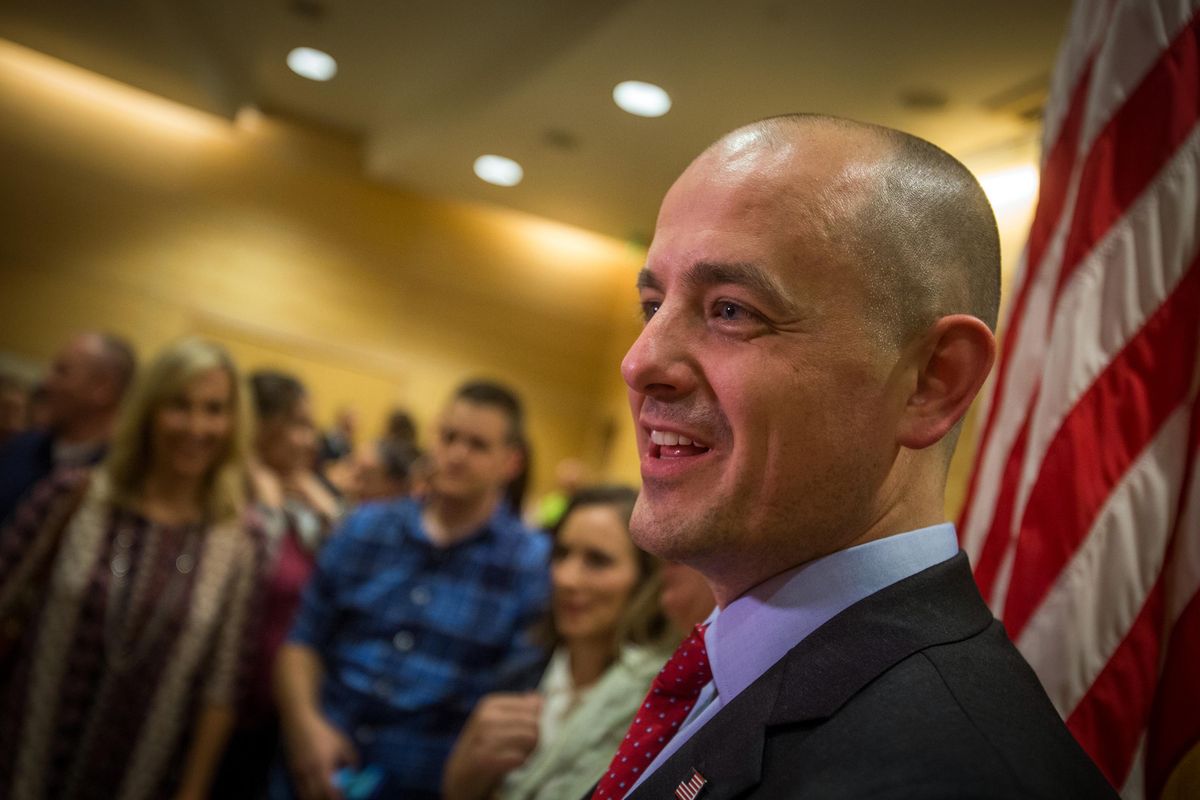Clinton, Trump not the only choices on your ballot

With national polls suggesting many voters believe one presidential candidate is too crass and the other too slippery, some may be looking for another option on their Nov. 8 ballot.
In Washington, they have five. In Idaho, six.
The differences between the two states’ electorates and their rules to qualify for the ballot mean that this year only one candidate, Libertarian Gary Johnson, is listed the same way on both states’ ballots.
Probably the best-known of the minor-party candidates, Johnson, the former governor of New Mexico, is running with former Massachusetts Gov. Bill Weld as his running mate. With between 5 percent and 10 percent of support in most polls that include more than Republican Donald Trump and Democrat Hillary Clinton, Johnson didn’t meet the minimum level of support to appear in the presidential debates. That level was set by the Commission on Presidential Debates, which is controlled by the two major parties.
Neither did Jill Stein, appearing as the Green Party candidate on the Washington ballot and an independent in Idaho, who is polling between 2 percent and 5 percent in some polls.
One other name appears on both states’ ballots: Darrell Castle is listed as the nominee of the Constitution Party in Washington but as an independent in Idaho, because that state’s Constitution Party selected Scott Copeland as its nominee based on his winning the state party’s primary in March.
In keeping with the overall political makeup of the two states, Washington has two additional presidential candidates more liberal than Clinton or Stein: Alyson Kennedy of the Socialist Workers Party and Gloria Estela La Riva of the Socialism and Liberation Party. Idaho has two additional conservative candidates, Rocky De La Fuente, running in some states on the Reform Party and in others on the American Delta Party but listed as an independent in Idaho, and Evan McMullin, a former congressional Republican staffer running as an independent in several Western states.
Plus, there’s always the write-in option.
John Orr, a Spokane Democrat who supported Bernie Sanders in the caucuses and conventions, said he may write in the Vermont senator’s name for president and just focus on the “down-ballot” races.
He doesn’t like Clinton and “can’t imagine Donald Trump as president.” He thinks Stein of the Green Party has some interesting ideas but not enough to earn his vote and Johnson “isn’t ready for prime time.”
“Washington is Democratic enough that Hillary will carry the state,” Orr said, so he doesn’t mind writing in Sanders. “We all get to vote but we don’t all get to vote for who we want.”
Anthony Carollo, executive director of the Greater Spokane Association of Evangelicals, said he believes evangelical Christians are unhappy with their two main choices, “as is most of America.” His Facebook news feed has a wide variety of opinion on both sides and “civility seems to be out the window.”
While not voting is a possibility, Carollo believes Christians have a responsibility to engage in their community.
“I think we’re called to pray and vote,” he said.
Pastor Bob Smith of Mount Spokane Church, a nondenominational, evangelical, Bible-based congregation, said he thinks many voters on both sides don’t like their choice for president and will be voting against the other candidate rather than for theirs. They’ll be voting more for the platform of the party the candidate heads than the nominee.
Evangelicals he’s talked to are unhappy that Republican leaders are backing away from Trump in the closing weeks of the election, Smith said. “That’s when people started to shut down and not watch the news. They’re willing to stand by their man and party leaders aren’t.”
Smith, who’s been a pastor in the Spokane area for 40 years, suspects most evangelicals won’t switch to a minor-party candidate who might share their beliefs.
“They’re aware that third-party candidates aren’t going to win the election.”